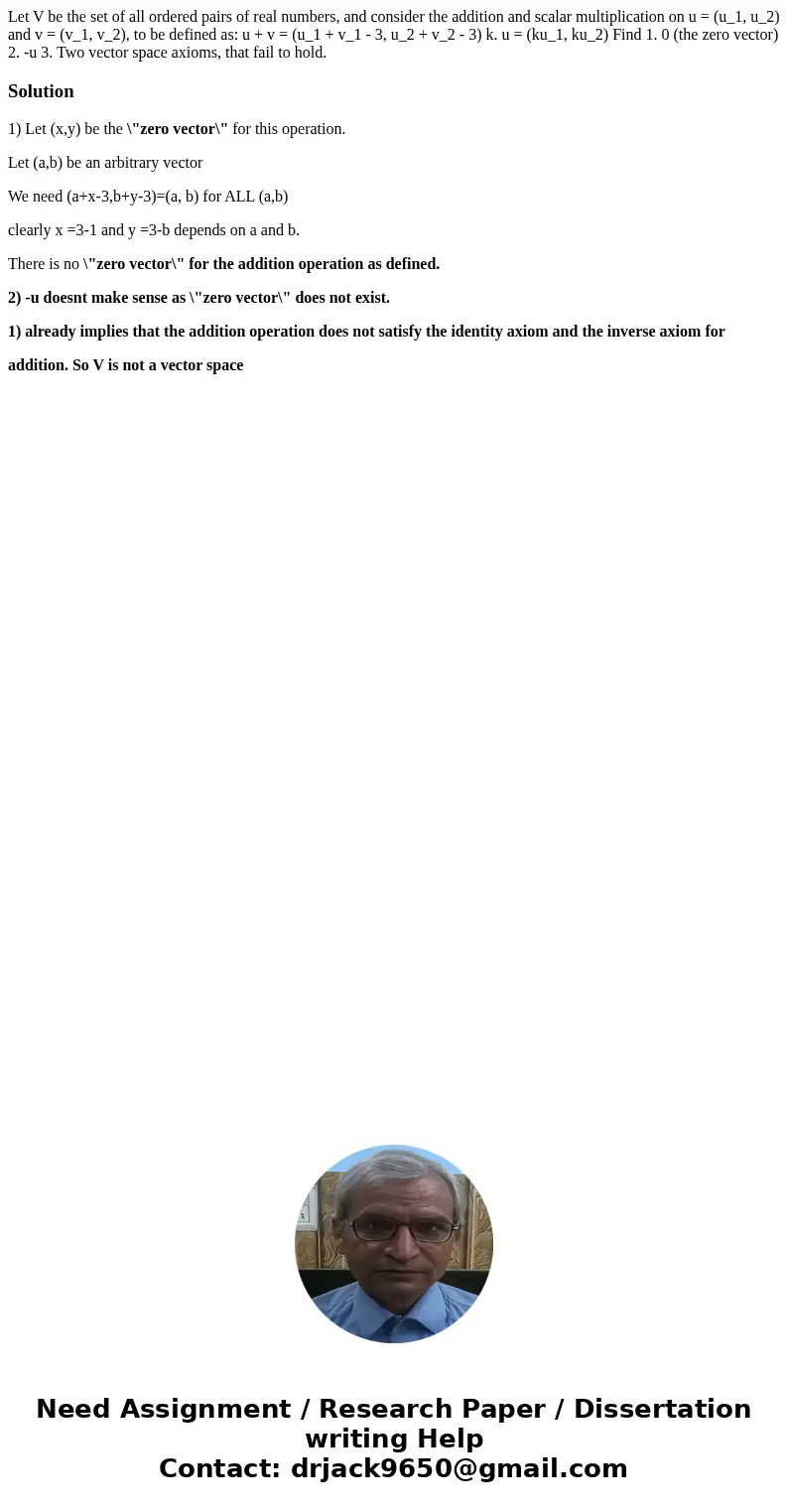Let V be the set of all ordered pairs of real numbers and co
Let V be the set of all ordered pairs of real numbers, and consider the addition and scalar multiplication on u = (u_1, u_2) and v = (v_1, v_2), to be defined as: u + v = (u_1 + v_1 - 3, u_2 + v_2 - 3) k. u = (ku_1, ku_2) Find 1. 0 (the zero vector) 2. -u 3. Two vector space axioms, that fail to hold.
Solution
1) Let (x,y) be the \"zero vector\" for this operation.
Let (a,b) be an arbitrary vector
We need (a+x-3,b+y-3)=(a, b) for ALL (a,b)
clearly x =3-1 and y =3-b depends on a and b.
There is no \"zero vector\" for the addition operation as defined.
2) -u doesnt make sense as \"zero vector\" does not exist.
1) already implies that the addition operation does not satisfy the identity axiom and the inverse axiom for
addition. So V is not a vector space

 Homework Sourse
Homework Sourse